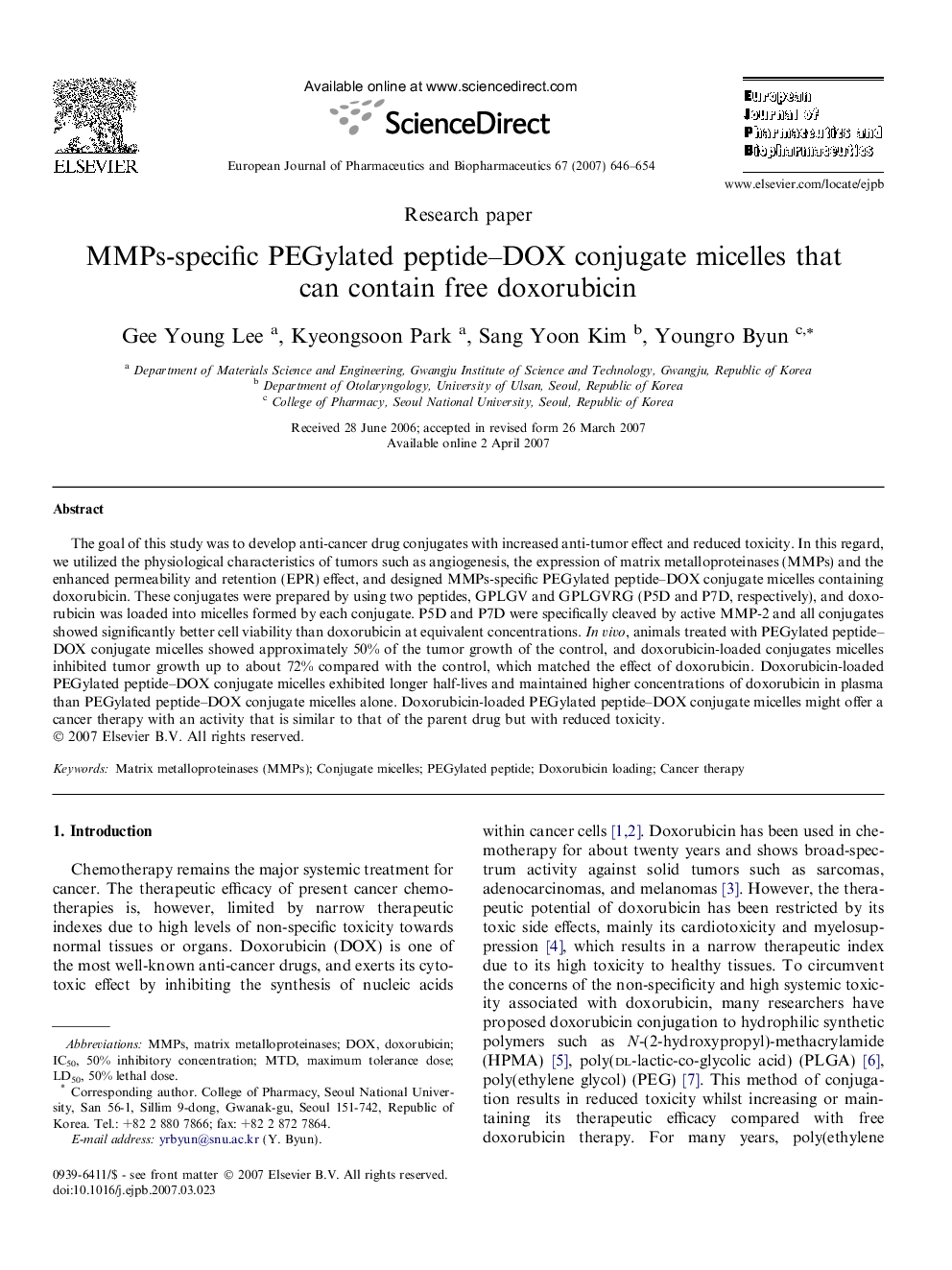| Article ID | Journal | Published Year | Pages | File Type |
|---|---|---|---|---|
| 2085701 | European Journal of Pharmaceutics and Biopharmaceutics | 2007 | 9 Pages |
The goal of this study was to develop anti-cancer drug conjugates with increased anti-tumor effect and reduced toxicity. In this regard, we utilized the physiological characteristics of tumors such as angiogenesis, the expression of matrix metalloproteinases (MMPs) and the enhanced permeability and retention (EPR) effect, and designed MMPs-specific PEGylated peptide–DOX conjugate micelles containing doxorubicin. These conjugates were prepared by using two peptides, GPLGV and GPLGVRG (P5D and P7D, respectively), and doxorubicin was loaded into micelles formed by each conjugate. P5D and P7D were specifically cleaved by active MMP-2 and all conjugates showed significantly better cell viability than doxorubicin at equivalent concentrations. In vivo, animals treated with PEGylated peptide–DOX conjugate micelles showed approximately 50% of the tumor growth of the control, and doxorubicin-loaded conjugates micelles inhibited tumor growth up to about 72% compared with the control, which matched the effect of doxorubicin. Doxorubicin-loaded PEGylated peptide–DOX conjugate micelles exhibited longer half-lives and maintained higher concentrations of doxorubicin in plasma than PEGylated peptide–DOX conjugate micelles alone. Doxorubicin-loaded PEGylated peptide–DOX conjugate micelles might offer a cancer therapy with an activity that is similar to that of the parent drug but with reduced toxicity.
